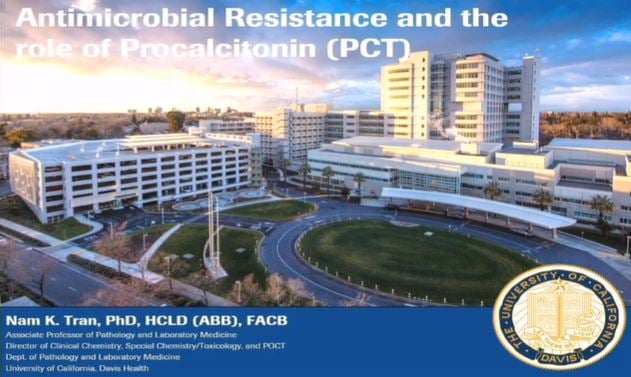Procalcitonin (PCT) plays a central role for successful antimicrobial stewardship programs. Originally considered a “sepsis biomarker”, PCT has evolved to aid in the de-escalation of antimicrobial therapy and help differentiate between bacterial versus non-bacterial infections.
The University of California (UC), Davis Health system implemented PCT in late-2014. Procalcitonin was found in our studies to correlate with sepsis severity and aid in predicting bacterial culture positive sepsis (OR 1.8, 95% CI 0.15 to 2.10, P = 0.007). Patients receiving appropriate antimicrobial therapy exhibited a statistically significant decrease in PCT by treatment day three, supporting the notion that the biomarker could be used for de-escalation.Based on case control data, adults (n = 200) receiving PCT directed de-escalation via an “ad hoc” algorithm reduced antimicrobial days by 28.2% over the first year and without any statistically significant increase in mortality/morbidity.
Special populations at UC Davis such as pediatric critical care and burn patients were also studied. Procalcitonin was found to have significantly better sensitivity and specificity versus C-reactive protein (CRP) and lactate for critically ill children. Severely burned patients presented with “baseline” PCT levels of 1.2 (0.8) ng/mL – suggesting burn-specific cut offs are needed for this population. In conclusion, PCT serves as a useful biomarker for antimicrobial de-escalation. Unique populations may merit altered PCT cut-offs. Implementation of a formal PCT algorithm for de-escalation is recommended to further decrease the duration of antimicrobial therapy.








